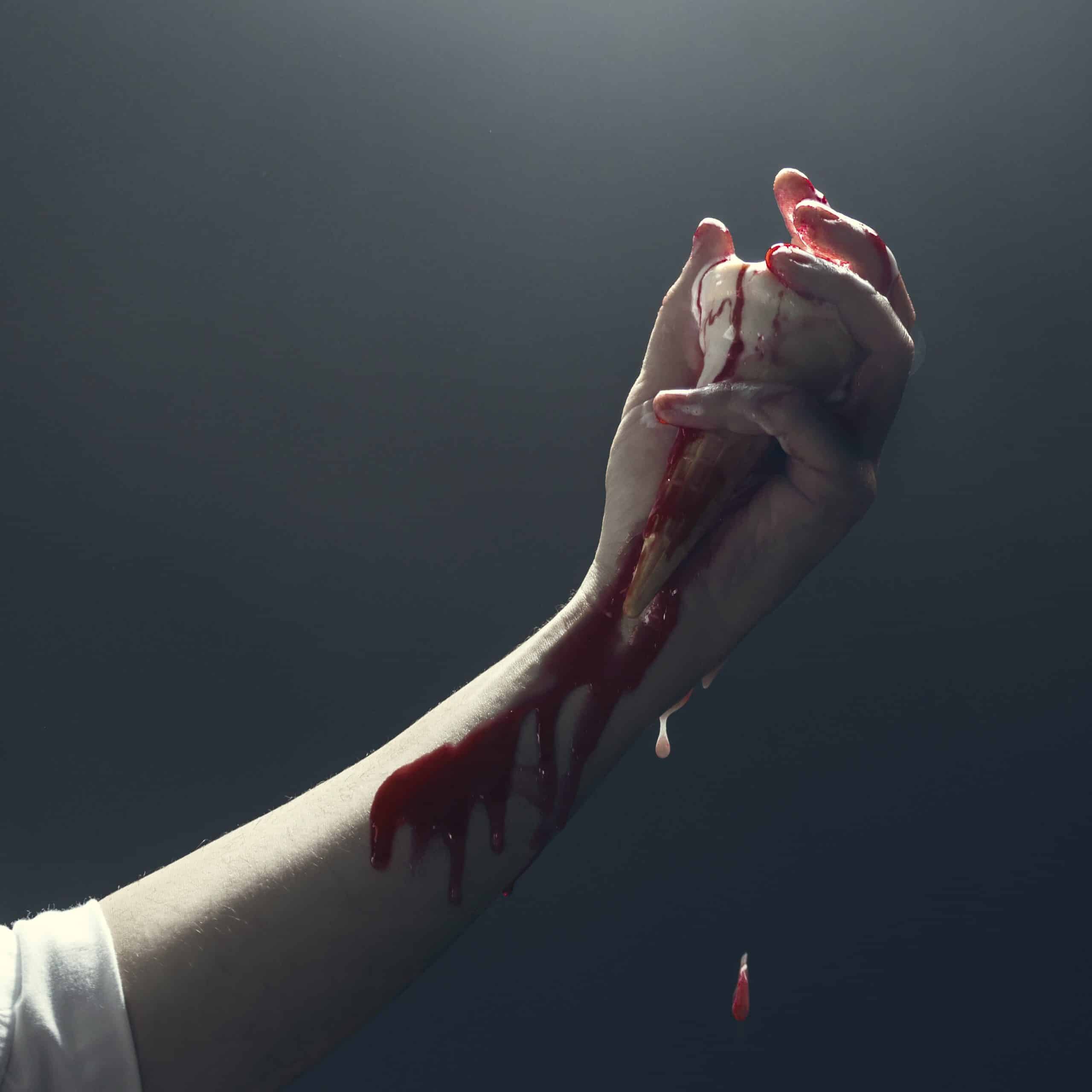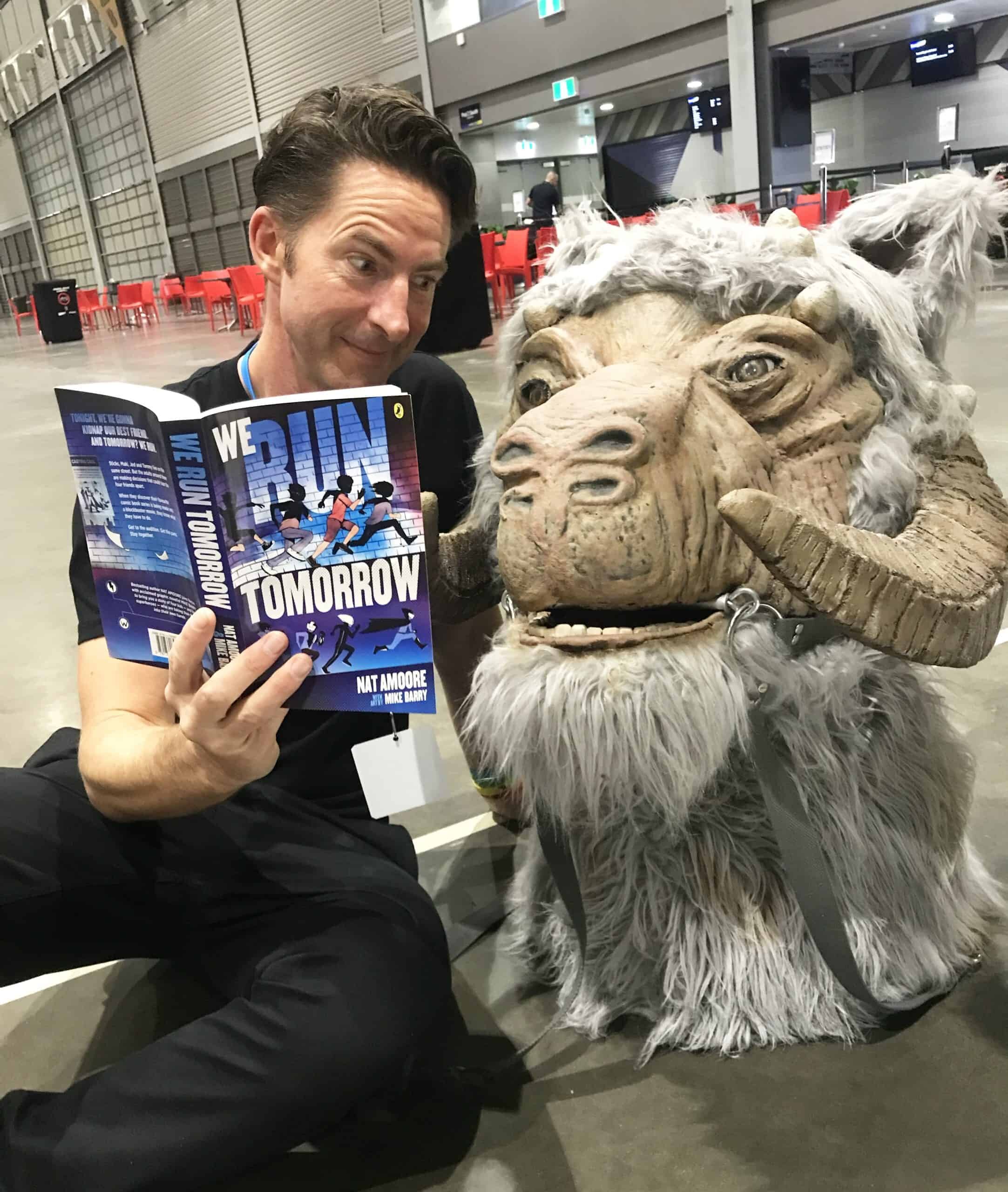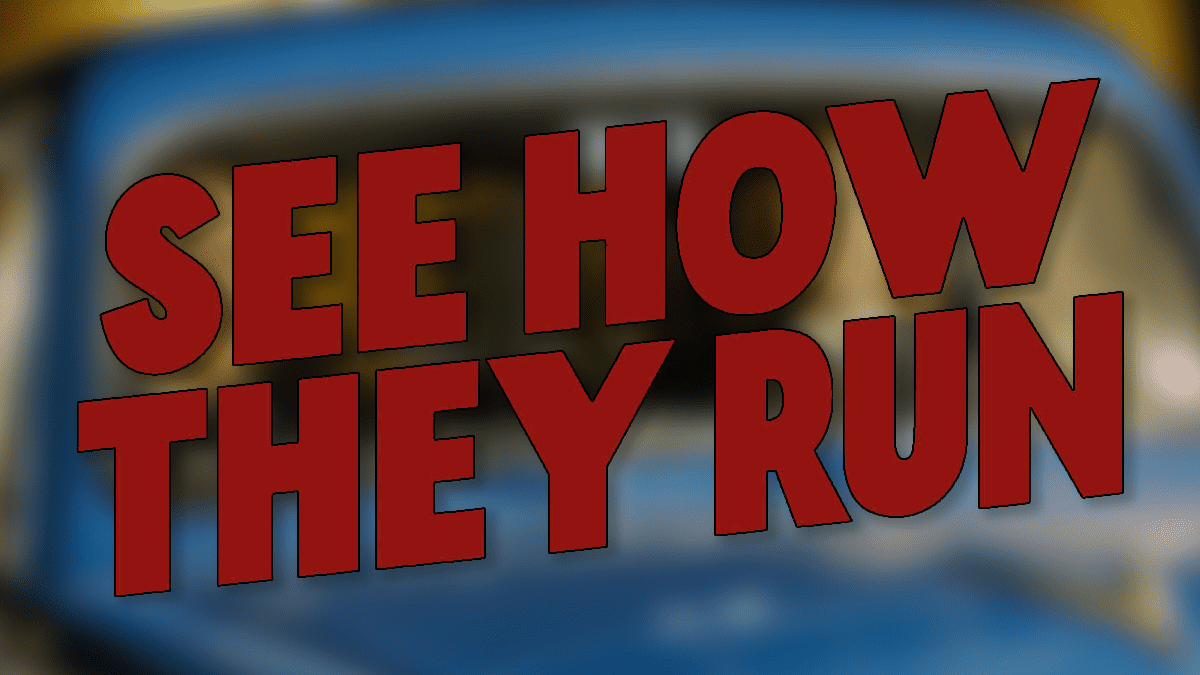Rylend Grant’s Suicide Jockeys
I recently caught up with Rylend Grant, Hollywood writer and creator of Comic Books including Banjax and Aberrant, to discuss his latest jaunt. This time into the Tokusatsu genre with Suicide Jockeys (out through Source Point Press). Initially pitched to the press as Voltron meets Fast and the Furious, Suicide Jockeys is Rylend Grant and co-creator Brad Warner’s love letter to the genre as a whole.
With this interview we delve deep into the inspirations behind Suicide Jockeys, the writing process and paying homage to a variety of classic 90s (now I feel old) films and tv shows.
You’ve previously released notable works including Banjax and Aberrant. You’ve even mentioned on your podcast, The Writer’s Block, that you’ve previously scripted many Hollywood scripts for Heist films. Tell us a bit about how you originally began mapping out what has now become Suicide Jockeys.
Rylend Grant: So, as you alluded to, I’ve spent the last 15 years or so writing film and TV projects in Hollywood – mostly big poppy action stuff – for folks like Ridley Scott, JJ Abrams, Justin Lin, John Woo, and Luc Besson… but one of the odder/less-explored lines in my bio is that I happen to be an ordained Soto Zen Buddhist monk. Suicide Jockeys was kind of born in the place where those two things brazenly collide.
Soto Zen is a Japanese tradition… and after practicing for years, I ended up with some very fun connections in the Japanese film business. One of them is another monk named Brad Warner. Brad is actually a pretty noteworthy author in his own right. He’s written probably ten great books on Zen. His seminal work, Hardcore Zen, has kind of become the modern American Zennie’s technical manual. Anyway, Brad spent his days, for about a dozen years, working in Japan for a company called Tsuburaya Productions… which is a company founded by the creator of Godzilla.
They’ve made a ton of great Tokusatsu (the Japanese sci-fi genre that includes shows like Power Rangers & Super Sentai and Kaiju joints like the aforementioned Godzilla) fare, but are perhaps best known for doing all of the Ultraman TV shows. So, yeah… Brad spent about a dozen years working as an executive/producer on Ultraman.
Brad and I would go on these retreats in the mountains/at the Mt. Baldy Zen Center a few times a year – days of silent meditation – and every once in a while, when we were permitted, we’d get to talking about movies, TV shows, & books we loved. We both grew up riveted by the grainy old Tokusatsu shows that played on weekends on our local UHF TV stations (props to WKBD TV50 in Detriot). Suicide Jockeys really sprung from those early reminiscences.
We both loved this stuff. The genre’s got a MASSIVE following around the world, but we thought it hadn’t really gotten a fair shake in the States. We started talking about how one might cool Tokusatsu up/package it for the modern American action fiend. This is what we came up with.

Suicide Jockeys is being sold to the comic book industry as Voltron meets Fast and the Furious. How has the Tokusatsu genre shaped you as a writer and far back do you go as a Tokusatsu fan?
Rylend Grant: So, both Brad and I go all the way back to our underoos with this stuff. It was kind of love at first sight for each of us. That said, I’ve had many loves. Brad has too, but Tokusatsu was really his soulmate. I mean, he’s the one who eventually moved to Japan to make this stuff, right?
Voltron meets Fast in the Furious is a pretty fair and apt comparison though… I mean, we’ve got that covered backwards and forwards from an expertise standpoint. Brad spent a dozen years making stuff like Voltron… and he’s honestly a walking Tokusatsu encyclopedia. On the other side of the coin, one of my claims to fame in the film business is that I’ve actually written for the directors of 6 of the 9 Fast & Furious movies. So, you’re in good hands here. While I’m making sure this appeals to that hungry American action movie fan, Brad is making sure Tokusatsu fans have an authentic experience.
You’ve been awarded and nominated for Ringo Awards before, why go down the route with a co-writer when you’ve previously enjoyed success for without the need for a co-writer?
Rylend Grant: It’s not really about need. It’s just about what the project calls for. Each book is different. Co-writes are the rule in film/TV, so it doesn’t even phase me to invite someone else to the table. Brad really brought something to this endeavor. I enjoy working/hanging out with him. It all just kind of happened naturally.


Banjax pushed the envelope with superhero noir. Can we expect a similar style in writing or instead would you say fans of your work can expect Tokusatsu fan service?
Rylend Grant: I’m always going to push the envelope. I got into comics because the film business started to break too conservative, too cookie cutter. I wasn’t allowed to push the envelope there. I really kind of went bonkers with Aberrant, Banjax, The Jump, etc and it was really invigorating. I mean, comics absolutely saved my creative life. So, yeah. You’ll get more of that here.
Tokusatsu fans will be happy though, too. I mean, we worked really hard to make sure they would be. That was important to us.
All that said, it feels like you’re asking me a question about tone here and that’s definitely interesting ground to mine. This is the best answer I can come up with… There is this subgenre of action movies, the big, poppy, swaggery, swinging dick fare we saw in the late 90’s. I’m talking films like Face/Off, Con Air, The Rock, and Armageddon… well, there is absolutely a way in which Suicide Jockeys is an unfettered love letter to those movies. Pure, gleefully, bonkers, howling-at-the-moon fun.
But… it’s also about something. At its heart, this book is really a Boogie Nights-style dissection of a non-traditional family. It does what all great sci-fi does… it wrestles with the bigger social, political, and economic questions of our day in a fun, heightened way. You’re definitely going to get a healthy intellectual dinner with your actiony desert here.

When writing a comic that is going to be so inspired by action, how do you approach the collaboration with your artists? How are the fight scenes and action going to differ in Suicide Jockeys versus your earlier releases?
Rylend Grant: Suicide Jockeys was brought to life by the same team – artist Davi Leon Dias, colorist Iwan Joko Triyono, & Letterer HdE – who brought you 10 twisted issues of my Ringo Award-winning political thriller Aberrant. There was a ton of BIG action in that book and it was very well received, so we’re kind of already in that rhythm, you know? I guess the difference here is we’re playing (gleefully) with Kaiju monsters, Mecha, and armored tanks & aircraft… so, that necessarily raises the bar. Trust me, it’s going to be FUN. It’s going to make you SMILE.
In terms of what I gave my collaborators while we were starting to build this thing, there were a lot of visual references… what things look like is very important, obviously… but I tend to focus on what things will feel like, the chords we’re attempting to strike inside our reader… and that usually consists of a lot of “read this” & “watch this.” Again, those 90s action movies were a really strong influence. I feel like every one of those movies is a hard-hitting two-hour-long smile. That’s what we’re going for here.
You and Source Point Press are pushing out some 80s nostalgia with the Suicide Jockeys variants you’ve announced. How much of an influence has that era of Pop Culture been on this Comic Book series?
Rylend Grant: Well, you’ll fully see the 90s influence (described above) at work here, but yeah… all of my creations very obviously owe a ton to the years I spent as a whippersnapper glued to the TV watching action classics like Die Hard, Beverly Hills Cop, Karate Kid, and Point Break. I’m famous at this point – perhaps infamous is a better word? – in the business for my homage variants, fitting tributes to the films that shaped me as a storyteller.
We set the bar pretty high while doing Aberrant with our Coming to America, Point Break, and Weekend at Bernie’s variants… we raised the bar even higher while doing Banjax with our Rocky IV and Gremlins tribute covers… well, needless to say, we went all out with Suicide Jockeys. I hope the world is ready for our Roadhouse, Top Gun, and Mr. T Cereal variants. Honestly? They might not be.


Subscribe to our Newsletter
RELATED ARTICLES:
1. Ricardo Delgado on Dracula of Transylvania
2. Bete Noir’s Andrew Clemson talks growth through Comic Book Writing
3. NOTTINGHAM’s David Hazan talks his Secret Weapon: Lady Marian
4. David Pepose on Roxy Rewind and Comic Inspiration







